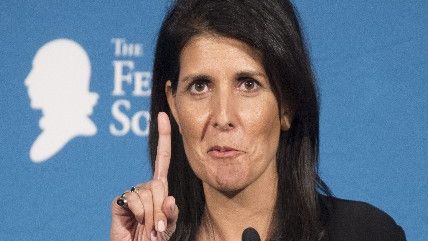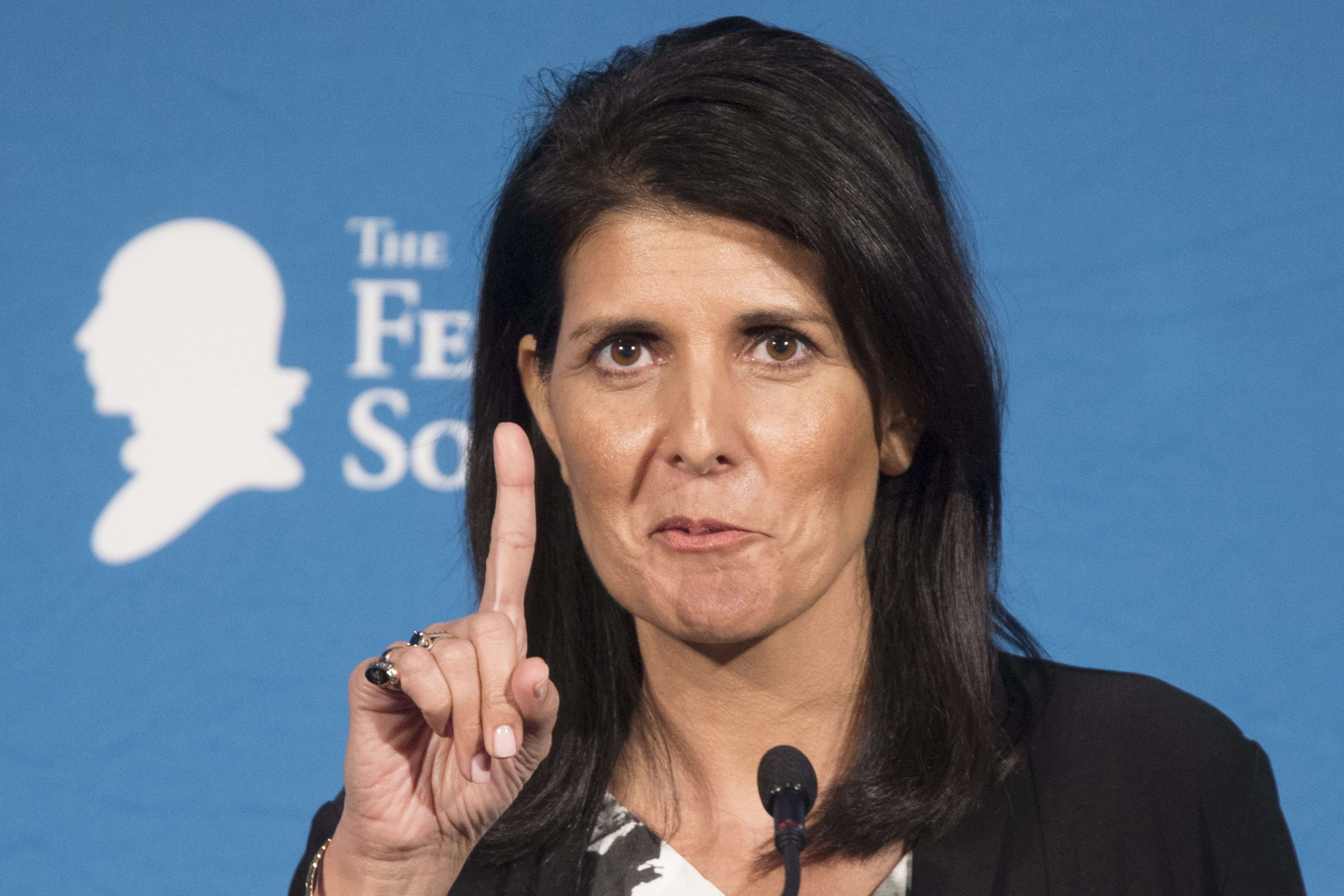Does Nikki Haley Have Any Clear Foreign Policy Views?
The likely next ambassador to the United Nations might be a rising GOP star, but she hasn't been very vocal on international affairs.


South Carolina Gov. Nikki Haley (R) has reportedly accepted President-elect Donald Trump's offer to become the next U.S. ambassador to the United Nations (U.N.).
The choice is surprising, not least because Haley only reluctantly and belatedly endorsed Trump in the general election. During her State of the State address last January, she called on voters to "reject the siren call of the angriest voices" in the Republican Party, which touched off mutual criticism that led to this memorable Twitter exchange between the two:
The people of South Carolina are embarrassed by Nikki Haley!
— Donald J. Trump (@realDonaldTrump) March 1, 2016
@realDonaldTrump, Bless your heart.
— Nikki Haley (@nikkihaley) March 1, 2016
Now that Trump is headed for the White House, he has tapped into the rising star power of Haley, the daughter of Indian immigrants, to be his administration's representative in the infuriating international bureaucracy known as the U.N. In doing so, he adds some diversity to his cabinet (Haley is his first female addition to his senior leadership) and also throws a bone to establishment conservatives by adding one of their favorites.
While it makes political sense for Trump to tap Haley for a cabinet position, sending her to the U.N. is strikingly odd, considering she not only has no diplomatic experience, but has also barely made any of her foreign policy viewpoints known.
Haley has met with Indian Prime Minister Narendra Modi a few times, hoping to encourage Indian economic investment in South Carolina, but to date only six of the over 1200 companies doing business in the Palmetto State are Indian-owned. She has also vehemently opposed the Iranian nuclear deal and the lifting of sanctions on the Islamic Republic, and has asked the federal government to not send Syrian refugees to her state.
As governor, Haley also waded indirectly into foreign affairs by signing the first state-wide ban on public entities from doing business with companies who engage in boycotts "of a person or an entity based in or doing business with a jurisdiction with whom South Carolina can enjoy open trade." The move was widely interpreted as being directed against the anti-Israel Boycott Divest Sanction (BDS) movement, and similar bans have been passed in eight other states.
But that's about it as far as clear indications of Haley's foreign policy worldview go.
Nominating someone with no foreign policy experience to work at the U.N. may be unusual, but considering President George W. Bush nominated John Bolton for U.N. ambassador—despite the latter's insistence that the international body shouldn't even exist—stranger things have happened.
